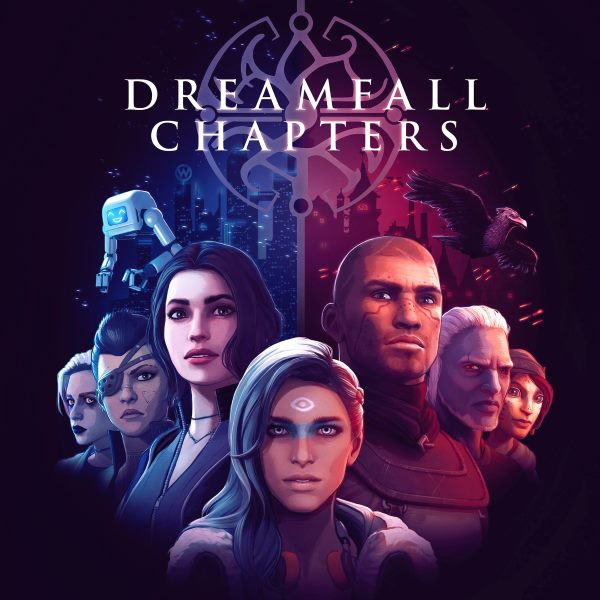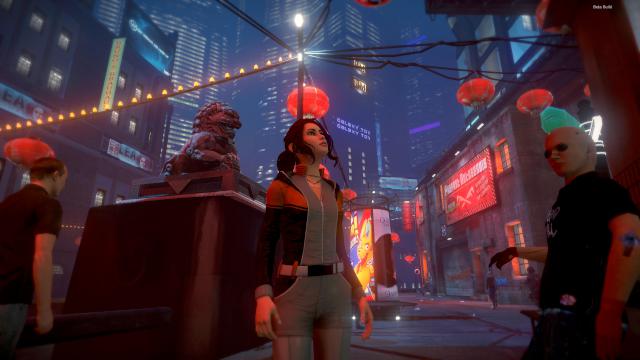
Dreamfall Chapters is a 3D adventure game originally produced in episodic format on PC from 2014, making its way to PS4 and Xbox One now as a full collection. It’s a sequel to The Longest Journey and Dreamfall: The Longest Journey (both of which I haven’t played) so there’s a fair amount of story to catch up on for those new to the series.
There are a lot of assumptions initially – the previous games aren’t really recapped in any great detail but they are referred to frequently and whilst the setup period before you really get into the new story is lengthy, it does a reasonable job of trying to not alienating newcomers, but you have to be prepared to put some time in to get up to this place.
One other thing not really explained is how to control and ‘play’ the game but anyone who has played any of the Telltale story games will grasp it quickly. You can examine elements of the environment, investigate them and piece together how to progress from use of items and dialogue with other characters.
The story itself is… fairly complex. I had to read the background on Wikipedia in the end to really help fill in the blanks as while I got the gist, it wasn’t quite enough to fully appreciate what was going on. Dreamfall Chapters is (obviously) about dreams. Set across two worlds, Earth (or “Stark”) is the closet of what we know today but is twinned and seperated from Acradia – a world of magic. From what I can tell, people can travel between the worlds by dreaming and there was a corporate activity to try and steal people’s dreams.
Fittingly, in Chapters you awake after being in a coma – well, a very of yourself awakes. This version of yourself has no memories (which I could relate to) and becomes involved in the political landscape – interlocking with other characters and storylines later through the game. I could not help but feel that if I had played the earlier games, I would have got more out of this, or cared about the characters more.

Choice is really key – I don’t know to what element it impacts the ending (from researching afterwards it appears that the ending is mostly fixed) but there are lots of options through the game which challenges you to decide what choice to make. Even small decisions will make you think and wonder if it’s really the right option for you, and a game which invokes these sorts of feelings is always a good experience in my opinion.
Characters need to be worth interacting with to makes these sorts of games work, and Dreamfall Chapters does a good job of handling these. Dialogue feels real, characters each exhibit their own personalities and at points it genuinely does feel exiting, engaging and emotional with some humour sprinkled few in the right places. Red Thread Games have gone for a realistic looking character model despite the fantastical storyline (which is a distinct difference to Telltale’s approach) but sadly the facial animations leave a lot to be desired and it cane come across rather jarring when you are looking at them at times.
Visually, the rest of the game is good. The two worlds mean there’s opportunity for fantastical and gritty looking settings, both vibrant and varied in their own ways. Blade Runner is channelled in the city of Europolis with it’s bright lights and flying robots, whereas Arcadia is fantastical and could be something out of Game of Thrones.
Aside from facial animations, load times are the other thorn in the side here, which make their presence felt every time you enter a new scene, building or even complete a quest. They’re not the worst – but it begins to grate after a while.
Despite these problems, Dreamfall Chapters is worth looking at if you like adventure games. You may need to do some research heading in to get the most out of it, but if you’re will to do so you’ve got a fair few hours enjoyment to hand.
Reviewed on PS4


Leave a Reply